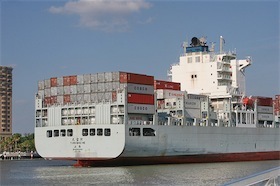Yes, China's Currency Policy is a Problem

(cc photo by cliff1066)
I think a lot of the discussion of the issue has somewhat overstated the extent to which Chinese currency manipulation is a problem for the United States. So I guess it's John Cochrane to the rescue with an op-ed that manages to wildly understate the issue. He starts with the odd premise that we should do a libertarian analysis of trade with a large dirigiste economy with a state-controlled banking sector:
How does anyone know if a currency is "undervalued" or not? The economists hidden away in the sub-basements of the IMF may try to decide what currencies "should be" worth across vastly different countries, but this is a hopeless task. Is $2 a day the "right" wage in China, or should that be $2.20 per day because the currency is "undervalued?" Good luck.
Indeed. Why not just leave the valuation of the currency up to the market? But has Cochrane not heard of the Chinese capital controls that are the crux of the issue here? The reason we don't just leave this up to the market is that the Chinese government doesn't let the market set the value of its currency. Instead the government sets the price. So while IMF economists can't get the "right" value as well as markets might, they can still say "this price-setting is being done in a distorting way."
Next graf, though, it seems Cochrane understands this perfectly well:
Why push China to manipulate its currency upward, but ignore its capital and exchange controls? We should push China to abandon those controls instead. A freely pegged currency is a great idea, especially for a fast-growing, trade-based economy with a weak central bank like China.
Why push China to manipulate its currency upward, but ignore its capital and exchange controls? Because nobody is doing this. What we're asking China to do is to relax those controls. Should we push China to "abandon" those controls instead of asking them to relax them? Well, it's hard to say what difference that would make.
To motivate the idea that there's a disagreement here, Cochrane then finds himself bizarrely denying that Chinese bond purchases are an effort to manipulate their currency level. Like Brad DeLong I would urge him to discuss this with someone. Go to China. Talk to their Commerce Ministry. Talk to their Foreign Ministry. Ask a businessman. Nobody is confused about this. The policy is export-led growth and that means not allowing the currency to appreciate too rapidly.


Matthew Yglesias's Blog
- Matthew Yglesias's profile
- 72 followers



